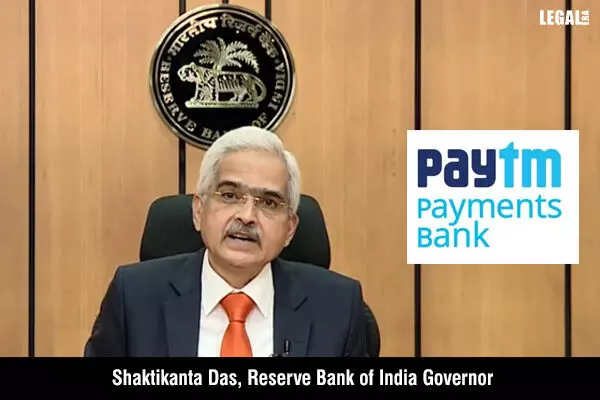- Home
- News
- Articles+
- Aerospace
- Artificial Intelligence
- Agriculture
- Alternate Dispute Resolution
- Arbitration & Mediation
- Banking and Finance
- Bankruptcy
- Book Review
- Bribery & Corruption
- Commercial Litigation
- Competition Law
- Conference Reports
- Consumer Products
- Contract
- Corporate Governance
- Corporate Law
- Covid-19
- Cryptocurrency
- Cybersecurity
- Data Protection
- Defence
- Digital Economy
- E-commerce
- Employment Law
- Energy and Natural Resources
- Entertainment and Sports Law
- Environmental Law
- Environmental, Social, and Governance
- Foreign Direct Investment
- Food and Beverage
- Gaming
- Health Care
- IBC Diaries
- In Focus
- Inclusion & Diversity
- Insurance Law
- Intellectual Property
- International Law
- IP & Tech Era
- Know the Law
- Labour Laws
- Law & Policy and Regulation
- Litigation
- Litigation Funding
- Manufacturing
- Mergers & Acquisitions
- NFTs
- Privacy
- Private Equity
- Project Finance
- Real Estate
- Risk and Compliance
- Student Corner
- Take On Board
- Tax
- Technology Media and Telecom
- Tributes
- Viewpoint
- Zoom In
- Law Firms
- In-House
- Rankings
- E-Magazine
- Legal Era TV
- Events
- Middle East
- Africa
- News
- Articles
- Aerospace
- Artificial Intelligence
- Agriculture
- Alternate Dispute Resolution
- Arbitration & Mediation
- Banking and Finance
- Bankruptcy
- Book Review
- Bribery & Corruption
- Commercial Litigation
- Competition Law
- Conference Reports
- Consumer Products
- Contract
- Corporate Governance
- Corporate Law
- Covid-19
- Cryptocurrency
- Cybersecurity
- Data Protection
- Defence
- Digital Economy
- E-commerce
- Employment Law
- Energy and Natural Resources
- Entertainment and Sports Law
- Environmental Law
- Environmental, Social, and Governance
- Foreign Direct Investment
- Food and Beverage
- Gaming
- Health Care
- IBC Diaries
- In Focus
- Inclusion & Diversity
- Insurance Law
- Intellectual Property
- International Law
- IP & Tech Era
- Know the Law
- Labour Laws
- Law & Policy and Regulation
- Litigation
- Litigation Funding
- Manufacturing
- Mergers & Acquisitions
- NFTs
- Privacy
- Private Equity
- Project Finance
- Real Estate
- Risk and Compliance
- Student Corner
- Take On Board
- Tax
- Technology Media and Telecom
- Tributes
- Viewpoint
- Zoom In
- Law Firms
- In-House
- Rankings
- E-Magazine
- Legal Era TV
- Events
- Middle East
- Africa
Paytm Payments Bank Decision Final: RBI Rejects Review

Paytm Payments Bank Decision Final: RBI Rejects Review
Reserve Bank of India (RBI) Governor Shaktikanta Das has firmly ruled out any reconsideration of the central bank’s action against Paytm Payments Bank (PPBL). The decision to restrict PPBL’s acceptance of deposits or top-ups in customer accounts, wallets, FASTTags, and other instruments after February 29 was made following a thorough assessment of the bank’s operations.
During a press conference after the recent 606th meeting of the Central Board of Directors of RBI, Das clarified, “There will be no review of this PPBL decision. Let me say it very clearly: no review.” Finance Minister Nirmala Sitharaman also addressed the meeting.
According to Das, RBI’s actions are always based on comprehensive evaluations of regulated entities. While supporting the fintech sector, RBI remains committed to safeguarding customer interests and ensuring financial stability.
RBI is set to release a set of Frequently Asked Questions (FAQ) regarding the Paytm issue.
The RBI Governor asserted that the action against PPBL was taken following persistent non-compliance and continued material supervisory concerns.
Previously, on March 11, 2022, RBI had prohibited PPBL from onboarding new customers.
In its latest move, RBI has directed PPBL not to accept deposits, credit transactions, or top-ups in customer accounts, prepaid instruments, wallets, FASTags, and NCMC cards after February 29, 2024. However, interest credits, cashbacks, and refunds can continue beyond that date.
Additionally, PPBL customers can freely withdraw or utilise balances from their accounts, including savings and current accounts till their available balance.
RBI also ordered the termination of One97 Communications Ltd’s 'nodal accounts'. Although One97 Communications owns the Paytm brand and holds 49 per cent of Paytm Payments Bank Limited, it categorises the bank as an associate rather than a subsidiary.



